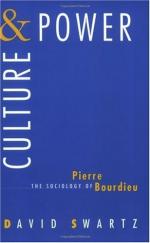|
This section contains 1,524 words (approx. 6 pages at 300 words per page) |

|
SOURCE: Shusterman, Richard. “Pierre Bourdieu: Reason and Passion.” Chronicle of Higher Education 48, no. 22 (8 February 2002): B13.
In the following essay, Shusterman details his professional relationship with Bourdieu, noting that despite their differences, they regarded each other with respect.
French philosophy is famous for radical theory in the service of progressive social causes. If Diderot, Rousseau, and Voltaire propelled this tradition in the 18th century (inspiring the French Revolution), Jean-Paul Sartre and Michel Foucault defined it in recent times by wielding their erudition and symbolic power to wage war in arenas of social struggle far beyond the campus gates. They drew mass publics, not just media citations. After the death of Foucault, in 1984, Pierre Bourdieu became the last great exemplar of this tradition. While postmodern philosophers like Jacques Derrida, François Lyotard, and Gilles Deleuze were too slippery and cryptic to have real political impact, Bourdieu could mobilize trade unions...
|
This section contains 1,524 words (approx. 6 pages at 300 words per page) |

|


